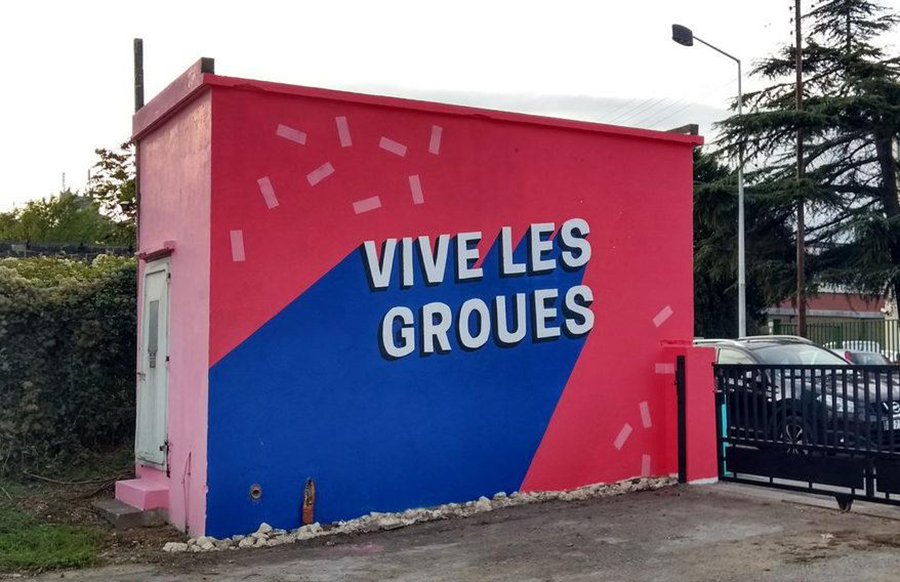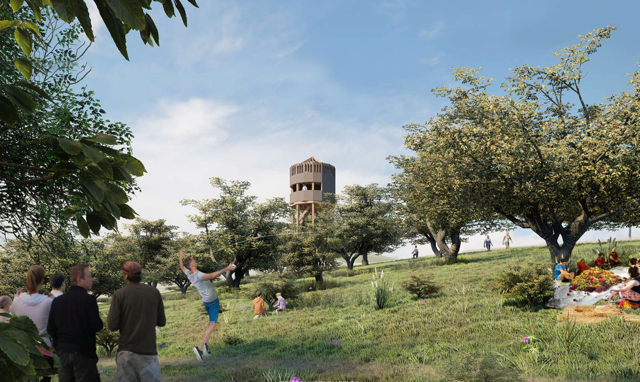
Call for entries: Deniz Villaları – Ecological Crossings
We’re delighted to announce our partnership with the Institut français de Turquie and the Goethe-Institut Türkei in their call for…
Published on 14 May 2018
Within the framework of the European Week of Sustainable Development, COAL organizes in partnership with IFORE and Yes We Camp a day of exchange and open work site around the subject “nature in town: the art of resilience”. The day takes as field of study the wasteland Vives les Groues in Nanterre and the project Appel d’air by Thierry Boutonnier, commissioned by the Société du Grand Paris.
The day is structured around the study and participation in two projects:
Long live the Groues, Nanterre
The Groues district in Nanterre has begun a profound transformation, which will last eight years. Between now and 2025, 5,000 housing units and numerous office and service buildings will be built around the future station of Line 15 of the Grand Paris Express.
“Vive les groues” is a 9,000m2 industrial wasteland transformed into a “summer garden”, which will host in the coming weeks a flowery meadow, a small forest, a workshop, a space dedicated to well-being, ecology and celebration. The project was born from the desire to initiate the future uses of the district and to make this new nature in the city a meeting place for current and future residents. It thus accompanies the transformation of the district over time by allowing the inhabitants (current and future) to appropriate the district by regularly meeting in an island of nature reclaimed from the urban space.
The project is led by the collective Yes we camp (already known for its project Les Grands Voisins, in Paris 14th).
The first step in the reclamation of nature in the city on this wasteland is the installation of a nursery that will host the 68 trees of the future Grand Paris Express stations, as part of the “Appel d’air” project by artist Thierry Boutonnier. A second nursery will soon house other trees for the public space of the neighborhood.
Draft
Appel d’air is a participative and environmental work of the artist Thierry Boutonnier, which accompanies the construction site of the Grand Paris Express until 2030. This “social sculpture” restores the place of life and plants in urban planning policies and involves the inhabitants in the transformation of the city.
Each of the forecourts of the 68 stations of the future Grand Paris Express metro will be planted with a remarkable tree, a Paulownia tomentosa, whose spectacular blossoming will be a recognition signal for users. Among the residents of the cities served by the future metro, sponsors are invited to adopt one of the 68 trees, and to visit the nursery regularly to care for them and learn horticultural skills.
The urban nursery Appel d’air has taken up residence in Vives les Groues.
We’re delighted to announce our partnership with the Institut français de Turquie and the Goethe-Institut Türkei in their call for…
Since 2022, as part of the Pays de l’Arbresle’s “Les murmures du Temps” art trail, Thierry Boutonnier has been sending…
Since 2022, as part of the Pays de l’Arbresle’s “Les murmures du Temps” art trail, Thierry Boutonnier has been sending…

